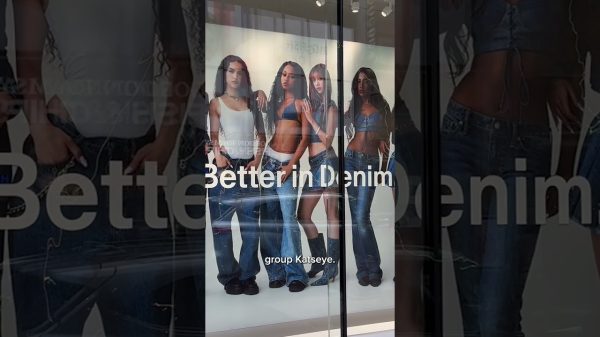All roads have been pointing to a soft landing recently for the U.S. economy. Unfortunately, Saudi Arabia and Russia are pursuing an entirely different path.
The two countries’ decision to extend oil production cuts until the end of the year caused oil prices to spike Tuesday. Brent crude futures climbed above $90 a barrel for the first time since November. The international benchmark has now risen 23% since the start of June.
The Federal Reserve’s battle against inflation has reached a tricky phase, and higher oil prices are unwelcome to say the least.
Consumer prices rose at an annual pace of 3.2% in July, up from 3% in June. The progress from here, to meet the Fed’s 2% target, is likely to be slower and more difficult. The last thing the central bank needs is higher oil prices adding to inflationary pressures.
The Cleveland Fed’s inflation model, updated daily, is now forecasting CPI to climb to an annual rate of 3.9% in September.
The debate is so finely poised over how high interest rates should stay and for how long. Elevated oil prices could tip the balance in favor of higher-for-longer. The stock market is already reflecting that possibility.
President Joe Biden is also likely to be somewhat irked by the actions of Saudi Arabia and Russia. Biden warned Saudi Arabia there would be “consequences” after it slashed oil production in October last year.
The White House’s National Security Advisor Jake Sullivan resisted the temptation to deliver another public rebuke yesterday, insisting that Biden remains focused on getting lower prices for U.S. consumers at the gas pump.
But the latest production cuts make Biden’s job, as well as the Fed’s, that little bit harder.
—Callum Keown
*** Join MarketWatch real-estate reporter Aarthi Swaminathan and Matt Vernon, head of retail lending at
Bank of America,
today at noon when they discuss whether an expected dip in mortgage rates later this year will be enough to make housing more affordable. Sign up here.
Try your hand at this morning’s Barron’s Daily crossword puzzle and sudoku games. For all games, including a digital jigsaw based on the week’s cover story, click here.
***
Oil Jumps After Key Producers Extend Cuts
Saudi Arabia, head of the Organization of the Petroleum Exporting Countries, and Russia will extend their oil production cuts through the end of the year, squeezing supply by a deeper-than-expected amount amid rising global demand. The markets had anticipated a one-month extension.
- Saudi Arabia will extend its voluntary production cuts of one million barrels a day through December, the state-owned Saudi Press Agency said. Russia will continue cutting production by 300,000 barrels a day for the same period, Deputy Prime Minister Alexander Novak said.
- Although Saudi Arabia will review the decision monthly, “we don’t sense any urgency” to change course, wrote Helima Croft, RBC Capital Markets’ head of global commodity strategy. The White House has fewer options to tame crude prices, having tapped supplies from Iran and Venezuela.
- After the International Monetary Fund sharply downgraded the kingdom’s economic growth projections because of the sales volumes it is losing, Saudi Arabia may need oil at almost $100 a barrel to cover Crown Prince Mohammed bin Salman’s spending projects, Bloomberg Economics said.
-
The production cuts sent energy company stocks higher.
Halliburton
closed up 2.2%, and
Occidental Petroleum
jumped 2.5%. Oil prices spiked, too, with international benchmark Brent crude rising to above $90 a barrel for the first time since November.
What’s Next: President Joe Biden is expected to meet with the Saudi Crown Prince at the G-20 meeting in India, but Croft said “any barrel relief” from their talks isn’t expected until next year. OPEC and its allies next meet on Nov. 26 in Vienna.
—Janet H. Cho
***
Regulators Examine Merger Review Guidelines as Amazon Suit Looms
The Federal Trade Commission and antitrust counterparts at the Department of Justice hosted an online workshop on their proposed guidelines for merger reviews, outlining how antitrust regulators will determine compliance with federal antitrust laws and whether to object to a proposed merger.
- FTC officials said the rise of digital marketplaces in America’s economy prompted the need for new guidelines, which haven’t been updated for more than a decade. Traditional antitrust analysis considered horizontal mergers among competitors and vertical mergers with suppliers.
-
FTC Chair Lina Khan and others say those approaches don’t grasp all the competitive effects of dominant platforms such as
Alphabet’s
Google,
Illumina’s
gene-readers, or
Adobe’s
graphic art holdings. The new guidelines say a proposed merger should be evaluated for its effects on competition. - Certain market concentration thresholds would trigger a presumption of harm, requiring the companies to prove their combination wasn’t anticompetitive. Antitrust law should consider the “economic harm” to consumers, workers, and suppliers, Georgetown University economist Steven Salop said.
-
Members of the Writers Guild of America said the increasing concentration in media giants like
Disney
and
Netflix
has crippled their livelihoods. Edward Longe, from the James Madison Institute, said mergers can increase competition among large rivals and can benefit consumers.
What’s Next: The FTC plans to sue
Amazon
this month, The Wall Street Journal reported. Regulators have been looking at whether Amazon favors its own products and how it treats outside sellers. The lawsuit will suggest “structural remedies” that could lead to a break up of the company, the report said.
—Bill Alpert and Janet H. Cho
***
Tesla’s
Musk Borrowed From SpaceX as Twitter Sale Completed
Tesla CEO Elon Musk borrowed $1 billion from SpaceX, the privately owned rocket company, at the same time as he was buying the social media site Twitter.
- Musk repaid the loan with interest in November, though it is unclear why he took it out in the first place, The Wall Street Journal reported. Musk holds 42% of SpaceX and almost 79% of its voting power, so he is able to take a loan out from the company if he wants to.
- Musk bought Twitter, now known as X, last year for $44 billion. After initiating the acquisition in April, Musk spent months involved in legal disputes in which he tried to drop his bid–a move which would have cost a $1 billion break-up fee if the deal fell through.
- Elon Musk is worth more than $250 billion, making him the world’s richest person. However, the majority of his wealth is tied up in shares.
What’s Next: While the Twitter deal didn’t affect Tesla directly, the legal saga caused some volatility in the EV company’s share price at the time on worries that Musk would sell some of his holding to raise funds. Tesla stock will be in focus Wednesday as investors digest the development.
—Brian Swint
***
Hollywood Strikes Force Warner Bros. Discovery to Slash Outlook
Warner Bros. Discovery
cut its full-year adjusted earnings outlook by up to $500 million because of the uncertain outcome of ongoing labor strikes by the Screen Actors Guild and the Writers Guild of America. The media giant expects the financial fallout to affect results through the end of the year.
- The CNN, HBO, and Warner Bros. studio owner projects full-year adjusted earnings of $10.5 billion to $11 billion, down from guidance it gave in August when it expected a quicker end to the strike. A proposal to end the strike would cost Warner Bros. $45 million a year, the Writers Guild said.
- Warner Bros. raised its free-cash-flow outlook for the year to at least $5 billion, in part because of the Barbie movie’s success. Barbie has raked in an estimated $612 million in domestic box office, and more than $1.38 billion worldwide, according to Comscore.
-
This fall’s network TV schedules are filled with reality shows and contests as writers and actors remain on the picket lines. Disney’s ABC has new seasons of its Dancing With the Stars and The Bachelor; CBS will air Survivor and The Amazing Race, and
Comcast’s
NBC has The Voice. -
Theater operators such as
AMC Entertainment
could use the coming Taylor Swift concert movie as an opportunity to make money with alternative content while studio releases are pushed back, according to B. Riley analyst Eric Wold. Box office analysts estimate the potential for a $100 million opening weekend.
What’s Next: Warner Bros. CEO David Zaslav is scheduled to appear tonight at a
Goldman Sachs
-hosted conference at which he plans to discuss the impact of the Hollywood strikes, the company said.
—Janet H. Cho
***
It’s Back to the Office Season for More Workers
Meta Platforms
employees assigned to an office now have to work in that office at least three days a week, a policy that kicked in Tuesday as tech giants use the end of the Labor Day holiday to make another attempt at enforcing a return-to-office work culture.
-
Zoom Video Communications,
arguably the pandemic’s poster child for the working from home office culture, is also joining the movement back to office space. It is moving workers within 50 miles of an office back to part-time in-person status. - Some workers’ reluctance to give up work-from-home arrangements has been raising questions about the future of office complexes and the economic effects of hybrid work. McKinsey Global Institute estimated it could erase $1.3 trillion from real estate value globally in big cities by 2030.
- Kastle Systems, a workplace security firm that tracks office occupancy, said its 10-city office barometer read 47.2% as of Aug. 23, drifting lower from the beginning of August. Austin and Houston had the highest rates of 57.9% and 60.9%, respectively. San Jose, Calif., was lowest with 38.8%.
- The New York Fed found that 68% of service firm employees in the region are in-person, and 13% are remote, with 19% in a hybrid arrangement. For manufacturers, 94% are in person. The ratios are expected to remain one year from now, with slightly less remote work in the service sector.
What’s Next:
BlackRock,
the asset management giant, is requiring workers to return to the office at least four days a week starting on Monday, adding a day to its current requirement. There is still an option for employees to work one day a week remotely.
—Liz Moyer
***
***
Dear Quentin,
I grew up poor and in an unstable environment as a result of my parents’ serial divorces. I started saving at 16 as a direct result of the financial instability of my youth, and my wife and I have been able to build what most of the world would describe as a small fortune through diligent saving and investing. I recently left a job, and my wife is unsatisfied with hers.
We are 47 and 45 and we’re dreaming of a new life. We are both looking for work, but we are also considering leaving the workforce for volunteer roles or expatriating ourselves to a Latin American country.
We have $1.5 million in our IRA accounts, $1 million in our brokerage accounts, a home with $400,000 in equity, $100,000 in cash and no other debt. In the next five years we expect to receive $200,000 from an estate sale. We do not have children and do not plan to have any. We have a few years until we can access our IRAs without penalties, and we plan to draw down our balances later in life.
We have used the MarketWatch Retirement Planner, which indicates that we could retire now if we can lower our spending to $90,000 per year. The math seems to work even if we take the 10% early withdrawal penalty on our tax-deferred accounts.
We love the idea of moving to a beach town in a Latin American country, learning Spanish and immersing ourselves in a new culture. What do you think? Have we reached a point where we can hit the beach, or do we need to work another five or 10 years?
—Dreaming of Sunsets
Read the Moneyist’s response here.
—Quentin Fottrell
***
—Newsletter edited by Liz Moyer, Brian Swint, Rupert Steiner, and Steve Goldstein
Read the full article here







